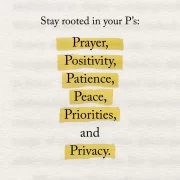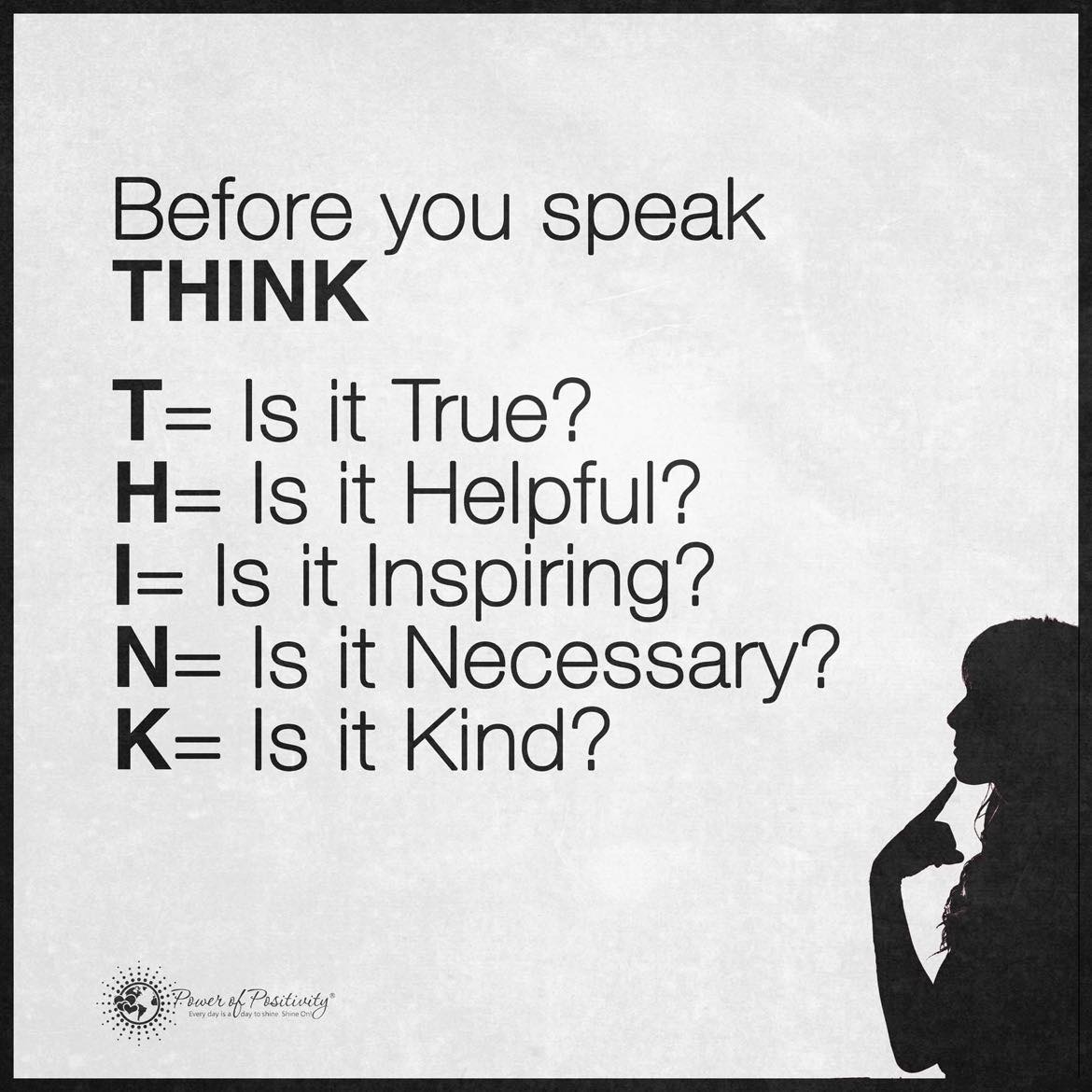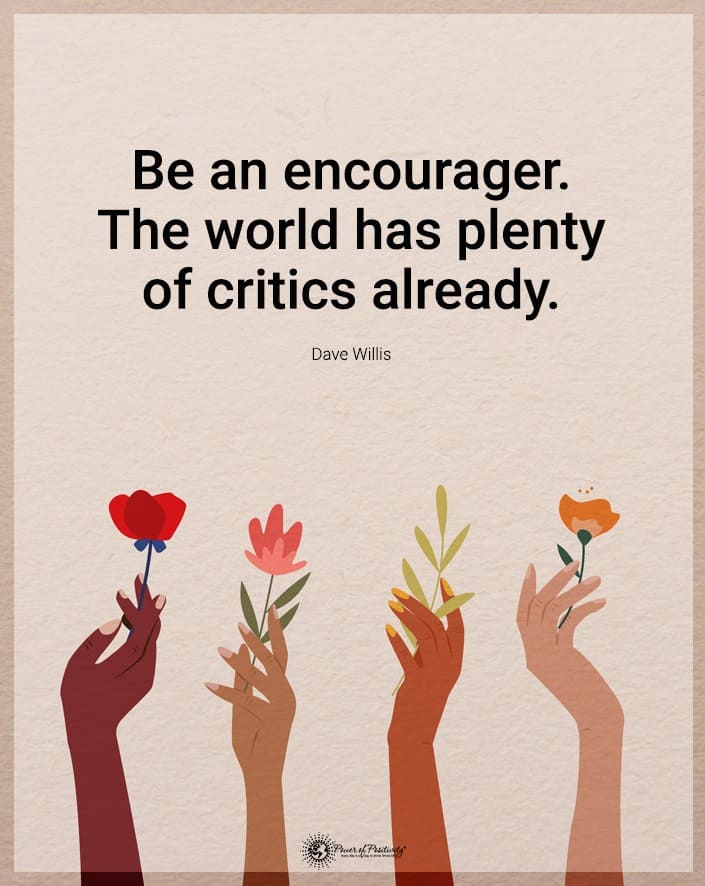Forgiveness can be hard to give, especially to those who have hurt you. Even if you don’t plan to tell someone that you forgive them, embarking on the personal journey to forgiveness is tough. But it can be done with the secret ingredient of compassion!
Compassion is the heart of human interaction. It teaches us how to learn, grow, and let go. In a similar vein, this trait can create the strength and understanding necessary for forgiveness. But how can you develop the right kind of trait for this purpose? Here are three simple ways to cultivate forgiveness and compassion.
1. Begin With Self-Compassion
When you have a harsh inner critic, you’re likely to also compare yourself to those around you. You might think that you’re not as good as others or wish that you were more like others. You could even feel like everyone else doesn’t want to be around you or that you always mess everything up. Perhaps you’d think it’s not worth trying to be around others because you don’t deserve them or their company.
What A Study Says About Loving Yourself
 All of these thoughts, stemming from a lack of self-compassion, damage your capacity to forgive by reducing your ability to connect. Studies show that thinking in this manner causes more envy and even impairs positive thinking. You can’t ignore people when you feel this way for many reasons, including these and more:
All of these thoughts, stemming from a lack of self-compassion, damage your capacity to forgive by reducing your ability to connect. Studies show that thinking in this manner causes more envy and even impairs positive thinking. You can’t ignore people when you feel this way for many reasons, including these and more:
- You have resentment bubbling from the comparisons as mentioned above. As a result, you hold grudges
- You think everyone else has it better or easier than you. Thus, you became unforgiving
- You think about yourself and your struggles more than you think about others, so you don’t understand them
- You become lost in your thoughts when with other people and can’t hear them out
- You’re not able to relate to others anymore and lack empathy. So you can’t understand different perspectives
- You’re too anxious to consider forgiveness and will opt for avoidance instead
- You take negative actions as a direct reflection of you, so you have no boundaries and don’t realize you’ve been wronged
On top of that, a lack of self-compassion can often point to an inability to forgive for your own sake. Forgiveness doesn’t have to be directly spoken to people who have harmed you. It can also just be a spiritual decision that benefits you, a promise to yourself that you’re moving on. If you’re not kind to yourself, you may not be able to perform that spiritual journey.
To cultivate general compassion for forgiveness, you must first cultivate self-compassion. To do this, you’ll need to understand the components of self-compassion. There are three of them, which are as follows:
· Common Humanity
It’s undoubtedly true that everyone is unique, but some factors unify us as people. Remember that common humanity keeps you grounded. People have failed in their lives, struggled, felt pain, and experienced suffering. What you’re thinking and feeling isn’t one-of-a-kind, and you’re not alone in that. Understanding that everyone around you has been through bad times and made mistakes is essential to dropping self-comparisons. Everyone’s fighting the same fight to some degree, so your struggles are no more a reflection of you than theirs are of them.
· Kindness To The Self
Kindness must be a part of your brand of self-compassion. In this context, that kindness involves being gentle to yourself. You have to use positive self-talk when dealing with your inner thoughts. You must be understanding to yourself for your flaws but confident in your ability to overcome them. And, of course, you must take care of yourself by getting enough rest, nutrition, sleep, and social activity!
· Mindfulness
Mindfulness means being present. It refers to the concept of not worrying about the past or future but instead simply existing in the here and now. When facing tough times, mindfulness lets you snap out of negative thought loops so you can focus on what matters. This is a great way to break vicious inner critic cycles and to pay more attention to what’s happening around you. You’ll gain better insight into other people’s lives and will have better thoughts simultaneously.
2. Fully Envision The Other Side With Compassion
To cultivate compassion to forgive others, you have to be able to understand where they come from. Empathy is central to this, whether it is natural, cognitive, or logical empathy. Research shows that this trait links to forgiveness. The critical point is that you must learn to imagine and comprehend other points of view. Even if you don’t relate to someone’s experiences, you still have to try and listen to them.
When you’re trying to cultivate forgiveness and compassion, you’re also trying to learn how to find things worth forgiving. It is easier to forgive someone when you understand their thoughts and where they come from. This is also an excellent way to live life in general, as you’ll forge better bonds with others and will approach them with an open mind.
Here are some tips for envisioning the other side of a situation to cultivate compassion for forgiveness:
· Listen With Generosity
If the person you want to forgive is willing to explain their side, listen to them without a closed heart. Don’t interrupt, judge, try to find solutions or counterarguments, or focus on what you’ll say next. Just listen. Put yourself in their shoes and think hard about what they say. They’ll get to hear themselves as they speak and will be more vulnerable when they see your open heart. You’ll be able to learn more and find more compassion to forgive.
· Illustrate The Other Side
If you’re struggling with understanding someone else’s perspective, flesh it out thoroughly and without malice. Write down every detail of what could have led them to their decision, even if it was a bad one. Act out the situation and put yourself in their shoes as you do so. You should aim to see the rationale for that person’s behavior without excusing it. This can humanize the person in your eyes, allowing you to find forgiveness and kindness.
· Stop Referencing Yourself
Bluntly put, the roots of someone’s negative behavior are rarely ever about you. Plus, as a unique personalities all on their own, their reactions and experiences are entirely different from yours. To practice genuine empathy, you must stop referencing yourself when interacting with others. Your perspectives should not be solely dominated by your own experiences but by an ability to understand multiple people. Be aware that other individuals have reasons for their actions, and don’t make it about you!
 3. Try Loving-Kindness Meditation
3. Try Loving-Kindness Meditation
Loving-kindness meditation, also known as Metta meditation, is a practice dedicated to cultivating compassion. It involves the meditation on positive feelings, such as goodwill, friendliness, nonviolence, love, and happiness. Studies have found that this form of meditation has profound effects on overall satisfaction.
Most importantly, loving-kindness meditation focuses on projecting these positive feelings and thoughts out into the world. This can open your mind and heart to new forms of compassion and forgiveness, helping you to find inner peace. It can change your entire worldview, which is especially helpful for making forgiveness a central part of your dealings with others. Shortly speaking, loving-kindness meditation cultivates compassion for forgiveness by:
- Making you feel calmer so you can approach issues with rationality. This allows you to feel more relaxed in the face of those you may want or need to forgive.
- Improving your social connections and relationships through the use of your improved mental health.
- Allowing you to develop self-compassion alongside outward compassion.
Of course, the effects of Metta meditation are not instant. But if you’re willing to do this practice consistently, you’ll reap the compassionate rewards. Here are the steps to performing a simple method of this type of meditation:
· Step Zero: Phrases
Before you even begin meditation, choose some phrases in a mantra to use. You’ll want to use positive statements that express hope, kindness, and gentleness, like well-wishes for the future. For example, you can choose phrases like “May (person) be safe” or “May (person) be happy.” You can also use longer sentences, like “May (person)’s life be at peace.” It is also great to combine multiple phrases and repeat them one after the other in a string. For these examples, we’ll be using the words “May (person) be healthy.”
· Step One: Yourself
Starting with yourself in loving-kindness meditation helps set the stage and clear the path for moving onto others. Use the phrases you decided on in Step Zero and focus your attention entirely on yourself. For example, you might say, “May I be healthy.” Remember to stay mindful and present – don’t allow your brain to counter your mantras! Focus on repeating them and manifesting them.
· Step Two: Another Person
Now, shift your meditative thoughts onto a person in your life. This could be a family member, romantic partner, friend, or even a colleague. Imagine that they are in front of you and focus your thoughts on them. Then, send them the well-wishes you have. Use those exact phrases from Step Zero and One. For example, you might say, “May you be healthy.”
· Step Three: Everyone
Next, shift those thoughts again. This time, imagine humanity as a whole. Extend that love and kindness to everyone and feel your heart swell with your care for them. Use the exact phrases again. For example, you might say here, “May you all be healthy.” You can use “May we be healthy,” too, but it’s best to focus outward and not include yourself here. The goal is to cultivate selfless compassion for others!
· Step Four: Challenging Your Compassion
Finally, go for a real challenge. Think of someone to whom you don’t want to give your compassion. This might be an awful boss, someone who abused you, a toxic person in your life, or even a mean stranger. Use the exact phrases, such as “May you be healthy,” while focusing compassion on them. It is important to remember that you are not excusing negative behavior by being kind. You are simply letting go and not allowing that behavior to linger, dismissing it with kindness. It’s a powerful way to move towards forgiveness!
When you can genuinely wish others well in life, you’re able to forgive them. The projection of love you have for them will show, even if they don’t want to acknowledge it. You want the best for them, even if they’ve wronged you, and hope for their learning and growth. This allows you to forgive them with love and kindness, thanks to the compassion you have cultivated.
 Final Thoughts On Some Simple Ways To Cultivate Compassion For Forgiveness
Final Thoughts On Some Simple Ways To Cultivate Compassion For Forgiveness
Forgiveness is a beautiful and powerful thing. You don’t necessarily have to tell someone that you forgive them for performing the action regardless. It’s about letting yourself grow and move on with positive thinking. By cultivating compassion, you’ll be able to freely forgive yourself and those who have wronged you, allowing peace and happiness within.
The post 3 Simple Ways To Cultivate Compassion For Forgiveness appeared first on Power of Positivity: Positive Thinking & Attitude.




 3. Try Loving-Kindness Meditation
3. Try Loving-Kindness Meditation Final Thoughts On Some Simple Ways To Cultivate Compassion For Forgiveness
Final Thoughts On Some Simple Ways To Cultivate Compassion For Forgiveness